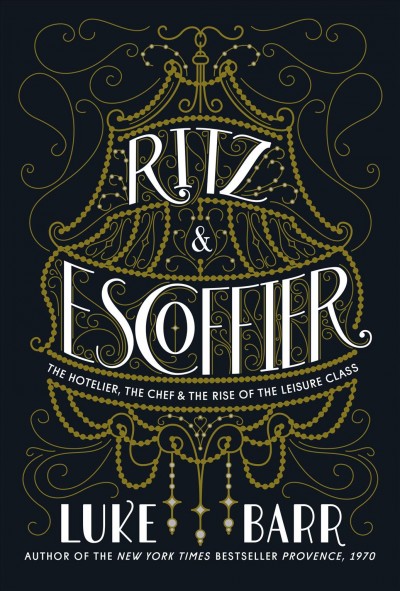 Anyone who knows me knows that I love food (I also like fancy hotels, but I can rarely afford to stay in them). All kinds of food from seven course French feasts to stuffing my face with hush puppies and soda. There very few things I won’t eat (I’m looking at you cranberries). I can even remember the first time I heard Escoffier’s name. It was also the first time I ever tried French food. I had Chicken Escoffier, which is basically a pounded out chicken breast, breaded and fried in a sea of butter. Very tasty. So when I saw that a new book on Ritz and Escoffier was coming out I said YAY! The book also covers a time period I’m very interested in, the period from the mid 19th century to the start of World War I in 1914. It’s a period of intense change and many of the things we think of today as normal (like fancy hotels and fine dinning) are creations of this period.
Anyone who knows me knows that I love food (I also like fancy hotels, but I can rarely afford to stay in them). All kinds of food from seven course French feasts to stuffing my face with hush puppies and soda. There very few things I won’t eat (I’m looking at you cranberries). I can even remember the first time I heard Escoffier’s name. It was also the first time I ever tried French food. I had Chicken Escoffier, which is basically a pounded out chicken breast, breaded and fried in a sea of butter. Very tasty. So when I saw that a new book on Ritz and Escoffier was coming out I said YAY! The book also covers a time period I’m very interested in, the period from the mid 19th century to the start of World War I in 1914. It’s a period of intense change and many of the things we think of today as normal (like fancy hotels and fine dinning) are creations of this period.
In early August 1889, Cesar Ritz, a Swiss hotelier highly regarded for his exquisite taste, found himself at the Savoy Hotel in London. He had come at the request of Richard D’Oyly Carte, the financier of Gilbert & Sullivan’s comic operas, who had modernized theater and was now looking to create the world’s best hotel. D’Oyly Carte soon seduced Ritz to move to London with his team, which included Auguste Escoffier, the chef de cuisine known for his elevated, original dishes. The result was a hotel and restaurant like no one had ever experienced, run in often mysterious and always extravagant ways — which created quite a scandal once exposed.
Barr deftly re-creates the thrilling Belle Epoque era just before World War I, when British aristocracy was at its peak, women began dining out unaccompanied by men, and American nouveaux riches and gauche industrialists convened in London to show off their wealth. In their collaboration at the still celebrated Savoy Hotel, where they welcomed loyal and sometimes salacious clients, such as Oscar Wilde and Sarah Bernhardt.
Escoffier created the modern kitchen brigade and codified French cuisine for the ages in his seminal Le Guide culinaire, which remains in print today, and Ritz, whose name continues to grace the finest hotels across the world, created the world’s first luxury hotel. The pair also ruffled more than a few feathers in the process. Fine dining would never be the same — or more intriguing.


